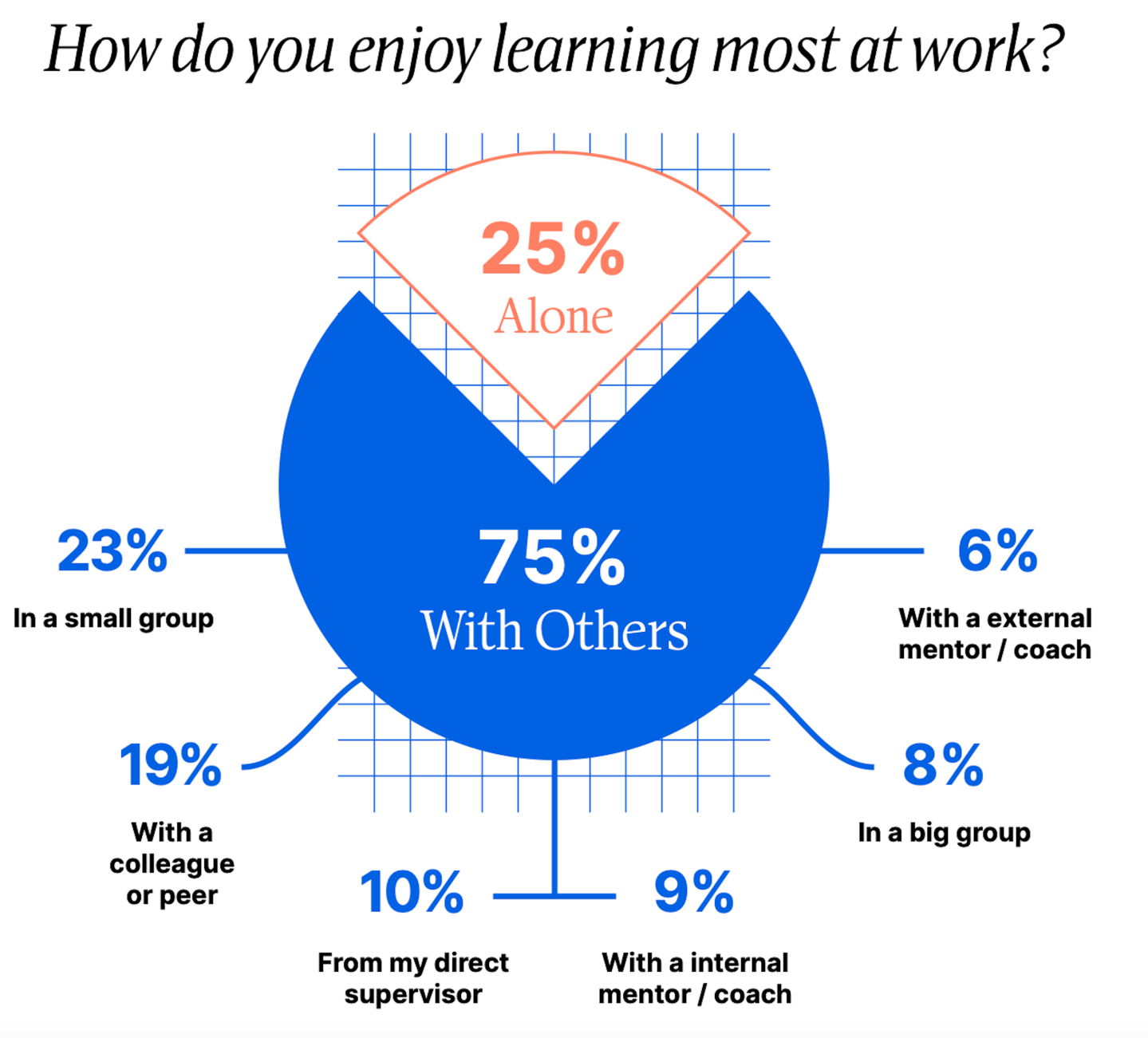Good morning.
Are you able to bring your authentic self to work each day?
If you ask William M. Washington III, global CFO at Baker McKenzie, an international law firm, he’ll tell you that embracing introversion is a part of creating an inclusive workplace. In LinkedIn posts, Washington has openly talked about being an introvert in a leadership position. After reading a few of his posts that came across my feed, I was intrigued to learn more about the finance chief at the largest law firm in the U.S. by headcount, according to the National Law Journal’s annual NLJ 500 list.
“When I first wrote about it on LinkedIn, I wasn’t trying to write about introversion or being an introvert,” Washington tells me. “I was just sharing my authentic self in a way that I thought might help somebody.”

“It wasn’t until I was really much older when I started using the term introvert to refer to myself,” he explains. “My wife had always read books on being an introvert, and then I started reading the books.” And that’s when he realized the character traits applied to him.
Introverts are often characterized as being more comfortable focusing on their inner thoughts and ideas, preferring to spend time with one or two people as opposed to large crowds, are energized by solo time, and feel drained by prolonged socializing.
How does Washington define himself as an introvert? He explains it as such: When given two options, for example, “‘William, it’s your birthday, and you can do X or Y,’” he says. “I choose to do Y, which is generally to be in an atmosphere by myself.”
“Now, I do a lot of activities,” Washington adds. “I’m the father of four children. I serve on a lot of boards. I have a lot of team activities that I have to do at work. But now I know that to protect my mental health, there has to be a big, big window where I don’t have to be giving, where I can just recharge.” And in between work meetings, he blocks off periods of time where he isn’t scheduled, he says.
Opting out of happy hours
When looking back on his life, Washington realized he’s been an introvert since he was a kid. And during college, he chose not to participate in big events. But he did enjoy intermingling with a small group of people while playing basketball, or at the library where he met “kindred spirits,” he says.
Earlier in his career, Washington was a finance manager at Accenture and Fannie Mae. His first CFO job was as finance chief of the Americas at Hogan Lovells, a law firm. When he became an executive, he took the initiative to begin to opt out of certain company events—like happy hours and some work dinners.
“I really used the drinking at happy hour to kind of cover up or mask the uncomfortable anxiety I felt, and tried to push through those events,” Washington explains. “I never enjoyed them because I tended to be burned out by the end of a workday. I worked really hard and I realized that I needed the time to recharge.”
He continues, “But when I became a global CFO, and started saying to people directly that, ‘I do not do work dinners’ is when I finally found my true self.”
Washington further defines his stance as: “I will not go to meetings all day, and then go to dinner with that same group that I sat in meetings all day with. To me, that is like grinding nails on a chalkboard in terms of what it does to my energy levels.” By avoiding that scenario, “I find myself much better in the morning time when I walk into that meeting room,” he says.
However, he’s not opposed to a separately planned dinner, for example, “If someone called me and said, ‘Let’s get together and meet with the bankers,’” that would work, Washington explains.
“Introverts are often exhausted in their workplace because many of their colleagues don’t know how to harness the power of introversion,” Friederike Fabritius, M.S., a neuroscientist, wrote in a recent article for CNBC. Some suggestions to make an introvert thrive in the workplace include respecting boundaries, allowing employees to brainstorm alone, shorter meetings, and encouraging people to decide how they want to communicate, according to Fabritius.
Social gatherings aren’t the only way to connect with colleagues or team members, Washington says. “I have really good relationships with people,” he says. “I do coffees. I do walks.”
“I actually think more leaders, including CEOs, are introverts than people notice,” Washington says.
The CEO Next Door is a book that, in part, explores this topic. The research is based on an analysis of over 2,600 leaders drawn from a database of more than 17,000 CEOs and C-suite executives. In a Harvard Business Review article, the authors explain one of the findings: Although when appointing CEOs “boards often gravitate toward charismatic extroverts, introverts are slightly more likely to surpass the expectations of their boards and investors.”
Washington hopes that other introverts will realize the types of environments they need to thrive at work. “Being empowered to say no is a big thing,” he says.
Sheryl Estrada
sheryl.estrada@fortune.com
Big deal
Upskilling and reskilling employees may help businesses remain competitive. Degreed, a learning platform, has released its "How the Workforce Learns 2023" report, which points to a clear need for social engagement while learning. The findings are based on a survey of 1,262 managers and 1,238 non-managers at companies with more than 500 employees across eight countries: the U.S., U.K., Canada, Germany, France, Spain, India, and Brazil.
Seventy-five percent of respondents said they enjoy learning the most with some form of social engagement. When learning with others, they especially appreciate a small group (23%) or a one-on-one session with a colleague or peer (19%)."Encourage social learning—whether it’s in person or enabled by learning technologies," Degreed recommends in the report.
The survey also found that 30% of respondents did not say their employers make learning available to all employees equally. Among semi-unskilled workers, that number rises to nearly four out of 10. The people who stand to benefit the most—those who need more skills—aren’t getting access.

Going deeper
On the latest episode of Wharton's Ripple Effect podcast, Katy Milkman, a Wharton professor of operations, information and decisions, and author of the book How to Change: The Science of Getting from Where You Are to Where You Want to Be, discusses how to make lasting behavioral changes.
Leaderboard
Gideon Oppenheimer was named CFO at Fetch, a rewards app and consumer-engagement platform. Oppenheimer served as EVP, head of finance at Uber Freight, overseeing over $5 billion in revenue from the ride-share company's Uber Freight business. Additionally, he facilitated the company's $2.25 billion acquisition of logistics solution provider Transplace. Earlier in his career, Oppenheimer worked at Coatue Management focused on private market investments and as a consultant at The Boston Consulting Group.
John Craighead, Ph.D., was named COO and CFO at HALO Precision Diagnostics. Craighead has more than 20 years of life sciences and financial services experience, recently serving as CFO and head of corporate development at Elpiscience. Earlier, he was VP of strategy, corporate development and investor relations at GRAIL. Craighead also held leadership roles at Sanofi, Atara Biotherapeutics, Lehman Brothers, and Human Genome Sciences.
Overheard
"I think what we're seeing is the Fed’s efforts to crush inflation are in turn starting to crush demand. And 7% mortgage rates are really keeping people on the sidelines [and] keeping people in their existing homes."
—National Association of Home Builders CEO Jim Tobin told Yahoo Finance Live in an interview.
This is the web version of CFO Daily, a newsletter on the trends and individuals shaping corporate finance. Sign up to get CFO Daily delivered free to your inbox.













